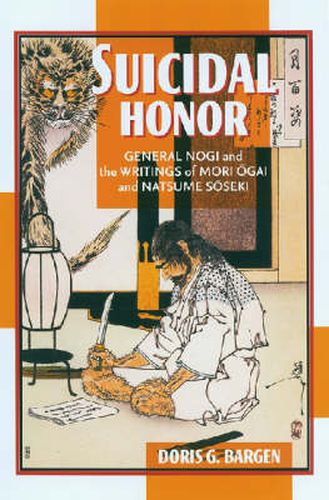Suicidal Honor: General Nogi and the Writings of Mori Ogai and Natsume Soseki
Doris G. Bargen

Suicidal Honor: General Nogi and the Writings of Mori Ogai and Natsume Soseki
Doris G. Bargen
On September 13, 1912, the day of Emperor Meiji’s funeral, General Nogi Maresuke committed ritual suicide by seppuku (disembowelment). The revered military hero’s wife joined in his act of junshi ( following one’s lord into death ). The violence of their double suicide shocked the nation. Doris Bargen, in the first half of her book, demonstrates that the deeper significance of Nogi’s action must be sought in his personal history, enmeshed as it was in the tumultuous politics of the Meiji period. In the second half of
Suicidal Honor , Bargen turns to the extraordinary influence of the Nogis’ deaths on two of Japan’s greatest writers, Mori Ogai and Natsume Soseki. Ogai’s historical fiction is a profound meditation on the significance of ritual suicide in a time of historical transition. The protagonist of Kokoro, Soseki’s masterpiece, refers to the general’s junshi before taking his own life. Scholars routinely mention this reference, but Bargen demonstrates the ways in which Soseki’s agonized response to Nogi’s suicide structures the entire novel. By exploring the historical and literary legacies of Nogi, Ogai, and Soseki from an interdisciplinary perspective,
Suicidal Honor
illuminates Japan’s prolonged and painful transition from the idealized heroic world of samurai culture to the mundane anxieties of modernity.
This item is not currently in-stock. It can be ordered online and is expected to ship in approx 4 weeks
Our stock data is updated periodically, and availability may change throughout the day for in-demand items. Please call the relevant shop for the most current stock information. Prices are subject to change without notice.
Sign in or become a Readings Member to add this title to a wishlist.


